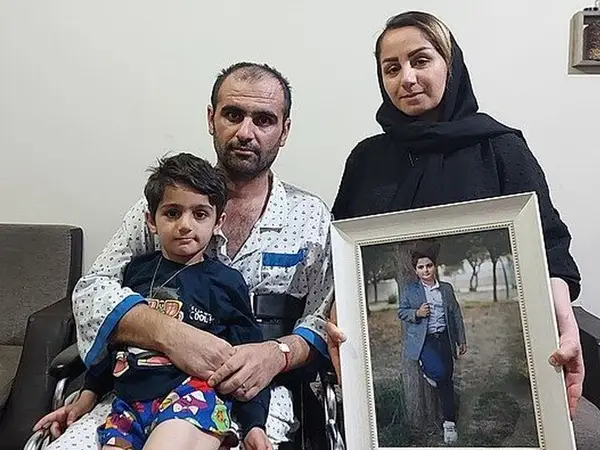The Iranian regime continues its crackdown on dissidents, targeting women’s rights, labor and union activists, environmentalists, and religious minorities in recent weeks.
In the past week alone, there have been reports of the arrests of two female former political prisoners in Tehran, two female environmental activists and journalists as well as two female writers, and a female animals rights activist in Rasht, two male citizens in Izeh who participated in the anniversary ceremonies for two of last year’s protest victims – nine-year-old Kian Pir-Falak and sixteen-year-old Milad Saeedianjou – as well as the latter’s sister in the same city and several others elsewhere.
Security forces who raided the home of female journalist and former political prisoner Shaghayegh Moradi in Tehran on Monday morning seized some of her personal belongings and took her with them to her mother’s house to search the premises. It is not clear which security body is responsible for the arrest and where she is being kept.
Mahnaz Tarrah, former political prisoner, however, was violently arrested on the street and taken to a court stationed at Evin Prison.
Farzin Rezaei-Roshan, also a former political prisoner, who was with Tarrah at the time of her arrest said in a video he released on social media that he was violently assaulted by the over a dozen agents who arrested his friend.
Rezaei-Roshan who is seen in the video in bloodied clothes says the agents used tasers and broke his head before taking his friend away.
In Rasht, capital of the northern province of Gilan, writer Rozita Rajaei was arrested Saturday and journalists Nasim Tavafzadeh and Helaleh Nategheh were arrested two days later. Both journalists had carried out research and written extensively about waste management, a big environmental problem in the region.
Like most other cases, there is very little information on these arrests in Rasht, but writer Nina Golestani’s husband said in an Instagram post that his wife was arrested by the Revolutionary Guards’ intelligence organization on her way home from shopping.
Due to censorship regulations, the mainstream media in Iran do not report on the majority of dissidents’ and activists’ arrests, which often involve unnecessary violence and maltreatment as well as confiscation of computers and mobile phones of not only the person being arrested, but of all other members of the family.
Information including reason for arrest and place of detention is often withheld even from the families of detainees by the authorities.
Social media users, however, actively inform the public of the arrests the regime strives to hide from the public and its human rights violations.
Pressure has also been high on Sunnis and followers of the Baha’i and Yarsan (Ahl-i Haqq) faiths that the regime does not recognize and considers as heretical unlike Christianity, Judaism and Zoroastrianism which have legal status in the Constitution.
The homes of the followers of the Baha’i faith, the largest non-Muslim religious minority in Iran, who have been persecuted since the Islamic Revolution of 1979 were raided in these cities by armed security agents last week with at least 19 people arrested and their personal belongings including electronic devices impounded.
The recent arrests have raised the number of Bahai’s arrested in the past month to at least 32 all of whom are still in prison.
The four members of the mystical Yarsan faith’s advisory council arrested in Kermanshah Province on Friday were reportedly freed after a few hours of interrogation but there is very little information on a Sunni cleric Abdulhakim Shahbakhsh who was arrested by security forces in Zahedan on November 8.
